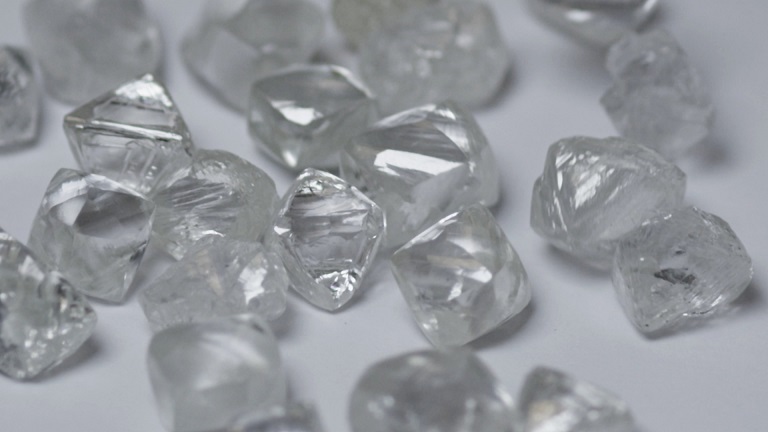
The volatility in the global diamond industry is beginning to have severe humanitarian and economic consequences across producer and manufacturing nations. Recent developments highlight the fragility of economies that rely heavily on diamonds, and the urgent need for market stability.
Botswana: Diamond Slump Triggers Public Health Emergency
Botswana, the world’s leading diamond producer by value, has declared a public health emergency after revenues from diamond sales halved in 2024. Production is expected to fall by at least 25 per cent this year, leaving the government with severe financial shortfalls.
Earlier today (25 August), President Duma Boko announced the emergency, citing a critical shortage of essential medicines. To address the crisis, 5 billion pula (USD 348m) has been reallocated from other government funds, while the state-owned Botswana Development Corporation has pledged 100 million pula (USD 7.3m). The president has also appealed to pension and insurance funds for support.
The military has been mobilised to distribute urgently needed medical supplies to rural areas. The Ministry of Health has identified shortages in medicines for hypertension, cancers, diabetes, asthma, eye conditions, tuberculosis, sexual and reproductive health, and mental health.
Although President Boko has referred to “market challenges” in official statements, local and international media have directly linked the crisis to collapsing diamond revenues, underlining the nation’s heavy dependence on the industry.
India: Tariffs Threaten 150,000 Diamond Jobs
In India, which processes the vast majority of the world’s diamonds, the industry faces a fresh crisis as the United States prepares to double tariffs on polished stones from 25 per cent to 50 per cent on 27 August.
The Diamond Workers Union Gujarat (DWUG), which represents a large section of Surat’s workforce, has warned Prime Minister Narendra Modi that the tariff hike could wipe out 150,000 to 200,000 jobs – nearly a fifth of India’s diamond workforce.
DWUG is urging the government to revive the Ratnadeep Scheme, originally introduced in 2008–09 during the global financial crisis. The scheme provided retraining opportunities and a daily stipend for unemployed diamond workers.
The union has also raised alarm over rising distress among workers, noting that at least 80 unemployed diamantaires have taken their lives in the last two years.
Zimbabwe: Building Closer Trade Links with India
While Botswana and India face mounting pressures, Zimbabwe is positioning itself to deepen diamond trade relations with India.
Vice President Constantino Chiwenga recently visited Surat to explore direct trade agreements that would bypass intermediaries. He also invited Indian investors to consider joint ventures in Zimbabwe’s mineral processing and industrial sectors.
With US tariffs on Zimbabwean diamonds set at 15 per cent – compared to India’s new 50 per cent rate – Zimbabwe sees an opportunity to attract Indian buyers and investors.
During the visit, Chiwenga met with leaders of Hari Krishna Exports to discuss partnerships aimed at moving Zimbabwe further up the value chain, from rough exports to local cutting, polishing, and manufacturing. Such developments could create significant employment opportunities, build local expertise, and reduce poverty in diamond-producing communities.
The Bigger Picture
These three stories highlight the immense global impact of diamond market fluctuations. For producer nations like Botswana and Zimbabwe, as well as manufacturing hubs like India, the stakes are not merely financial – they are deeply social and humanitarian.
The current instability underscores the importance of transparent, sustainable, and diversified diamond economies, alongside stronger international collaboration, to secure both industry resilience and the livelihoods of millions who depend on it.

Comments are closed